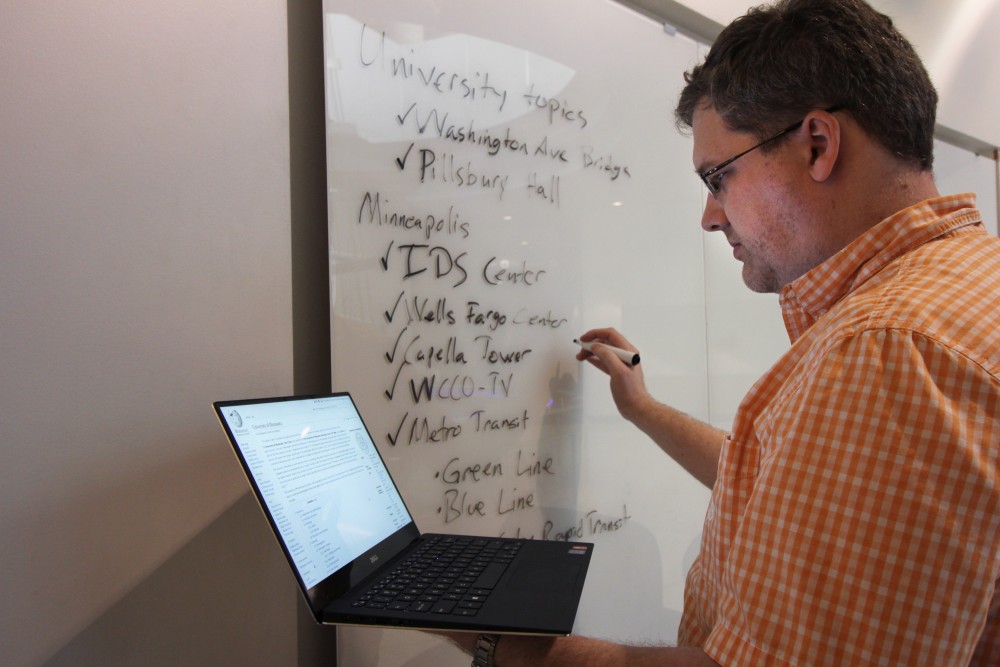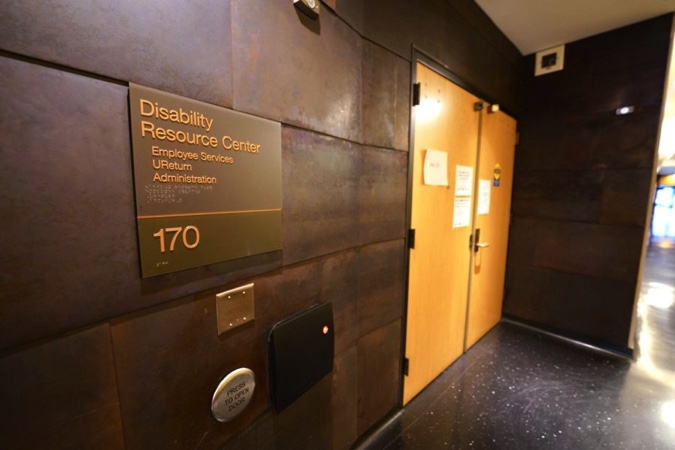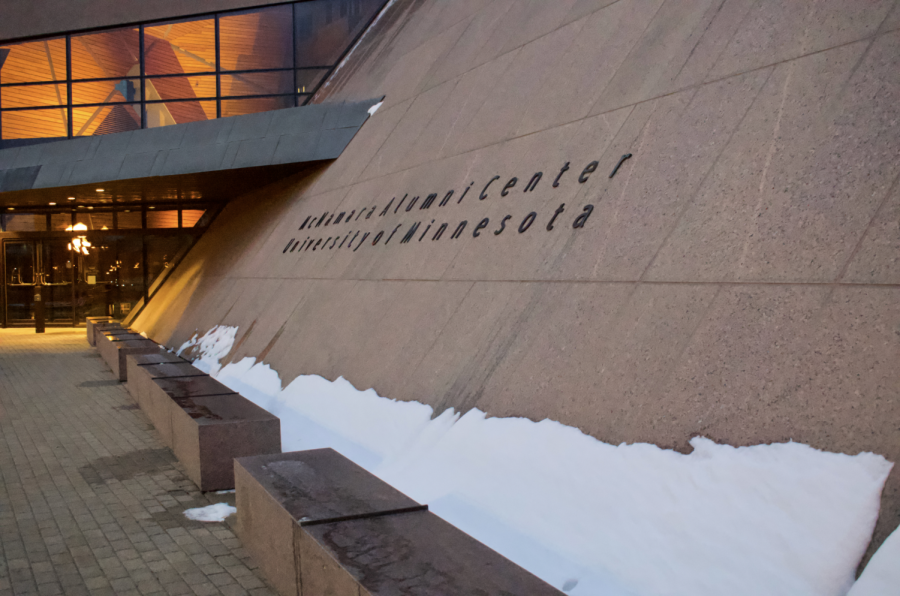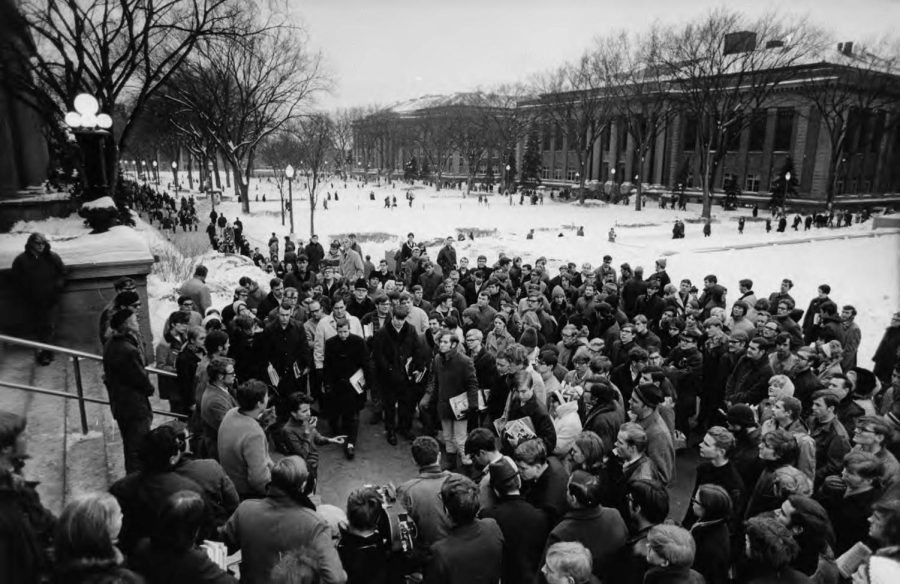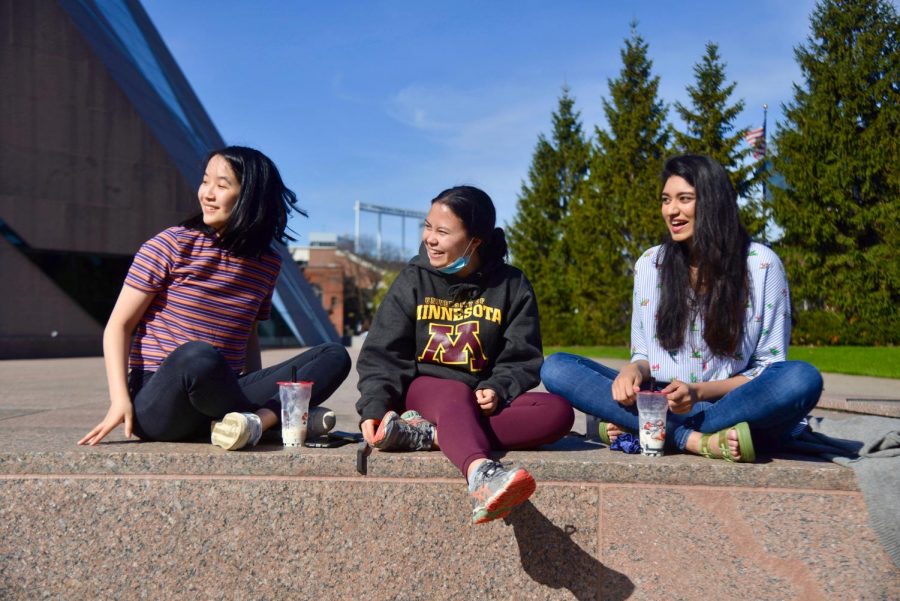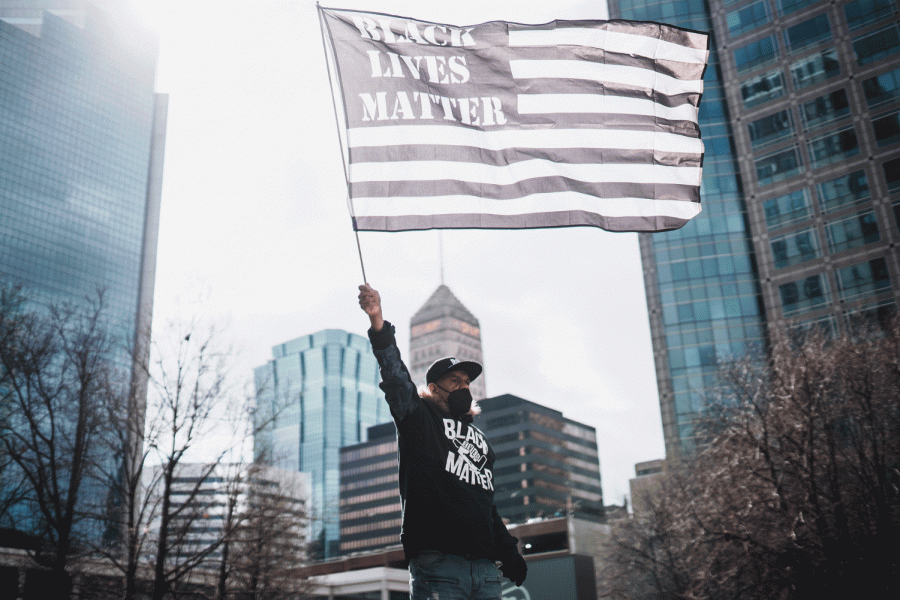Growing up, Mike Hicks would leaf through volume after volume of his family’s encyclopedia set — at that time a household staple.
Fast forward to 2002, when Hicks, a recent University of Minnesota graduate, started looking for jobs.
He found himself with a copious amount of free time, time his parents hoped he would use to find work. Instead, he began to explore a website still in its infancy: Wikipedia, the crowd-sourced online encyclopedia started in 2001.
Hicks, now 38, created an account and began to edit, add photos and create pages, primarily focusing on topics close to home — Minnesota. He was officially a “Wikipedian.”
“When I was in between work I could put in a full day’s work,” Hicks said. “Sometimes I did it a bit too much… it was something I could do and keep my mind occupied.”
Hicks ended up being the third registered user to edit the University’s page and has made the seventh-most edits in the page’s history.
Now, he has made over 17,000 edits. For some of the nearly 32 million Wikipedians like Hicks, the website can become something of an obsessive hobby. Despite the site’s rampant popularity, it is not without its faults — some even say it has an unwelcoming atmosphere.
‘Disparity of experiences’
Wikipedia — which relies on crowd sourced content and funds most of its $60 million budget through donations — is, indisputably, one of the world’s most successful internet ventures.
Distinct languages each have their own Wikipedia websites, the most popular being English, with almost 5.5 million different articles.
Launched by founder Jimmy Wales as a completely community-driven website, the community over time established its own ethics, guidelines and values.
Despite the success of its model, Wikipedia struggles with a community sometimes hostile to newcomers and a large gender disparity among users.
Surveys conducted by the Wikimedia Foundation — the nonprofit body that manages Wikipedia — found that between 10 and 24 percent of website editors identify as female, said Samantha Lien, Wikimedia Foundation communications manager.
And this gender gap impacts content. Only around 16 percent of Wikipedia biographies are about women, Lien said.
“When we have a disparity of experiences of editors, that is also reflected in the content,” she said.
While Wikimedia has not identified a sole reason for the gender disparity, Lien said the organization hopes to improve the gender balance by improving the broader community experience.
This year, the organization started providing resources to administrator users — a small group of users with special managerial abilities — to better handle online harassment among users, she said.
Other efforts to curtail this gender disparity’s effects have been more localized. Minneapolis museums and other institutions hold events called edit-a-thons, where users gather to create Wikipedia content focused on neglected topics.
At the Minneapolis Institute of Art, edit-a-thons with titles like Art + Feminism and African American Artists have risen in popularity since the museum first started hosting them in 2015, said Janice Lurie, Mia’s head librarian.
“People all over the world are curious, and one of the first places we go is Wikipedia,” said Susan Jacobson, the institute’s manager of lectures and academic programs, who helps run the edit-a-thons.
A ‘territorial’ community
Lien said the organization hopes their efforts also extend to broader community issues.
The Wikipedia community can be unwelcoming to newcomers, and often users who focus on one topic can be “territorial,” said Janos McGhie, St. Paul Public Library system librarian and avid Wikipedia user, who helps organize edit-a-thons.
Page vandalism and arguments over how to write small details like dates can create distrust in new and old users.
Also, articles are meant to be objective, but politically-motivated users can further sour community relations, he said.
“Wikipedia has a policy, ‘assume good faith among users,’ but it doesn’t always happen,” McGhie said. “It makes experienced users suspicious, when they [need not] always be. Especially of new users.”
A childhood passion
Some Twin Cities users trace their Wikipedia passion back to perusing through encyclopediae as kids.
“Somehow it grabbed me, I have the right personality to write an encyclopedia in my free time,” McGhie said.
For many the hobby starts as a way to pass the time: look at an article, then follow a hyperlink to another and then another. Users start to notice errors and decide to take action.
“I’m embarrassed to say, I’m pretty bloody obsessed. I’m editing most days. It’s definitely taken up most of my free time,” McGhie said. “I hate to think anyone is more obsessed than me.”
McGhie — who edits from one hour to two hours a day, although a new girlfriend has recently cut into that time — said the website appeals to users because it’s easy to get a sense of completion. In his case, it’s creating and editing pages about every park in Minnesota’s national registry.
Jon Platek, a 2002 University history graduate, said Wikipedia editing becomes a habit, like checking Facebook a couple times a day.
At his peak editing time, Platek said some days he would make up to 200 edits, and on days off work he could sit all day and edit intermittently.
“I’d be scared to tell a psychologist how many edits I’ve made on that website,” he said, laughing.
The new encyclopedia
In 2012, after 244 years, the world’s longest-running and most prominent physical encyclopedia, Encyclopedia Britannica, gave way to Wikipedia and the growth of digital media, and ceased printing.
The original household reference, which hung its hat on precise and thorough vetting from expert academics and researchers, was usurped by a website with an army of private citizens, like Mike Hicks, who have effectively become the world’s new historians.
Hicks’ self-written user page reads, “I’m not a historian — I just play one on Wikipedia.”
Correction: A previous version of this article misstated Susan Jacobson’s title. The correct tile is manager of lectures and academic programs.


